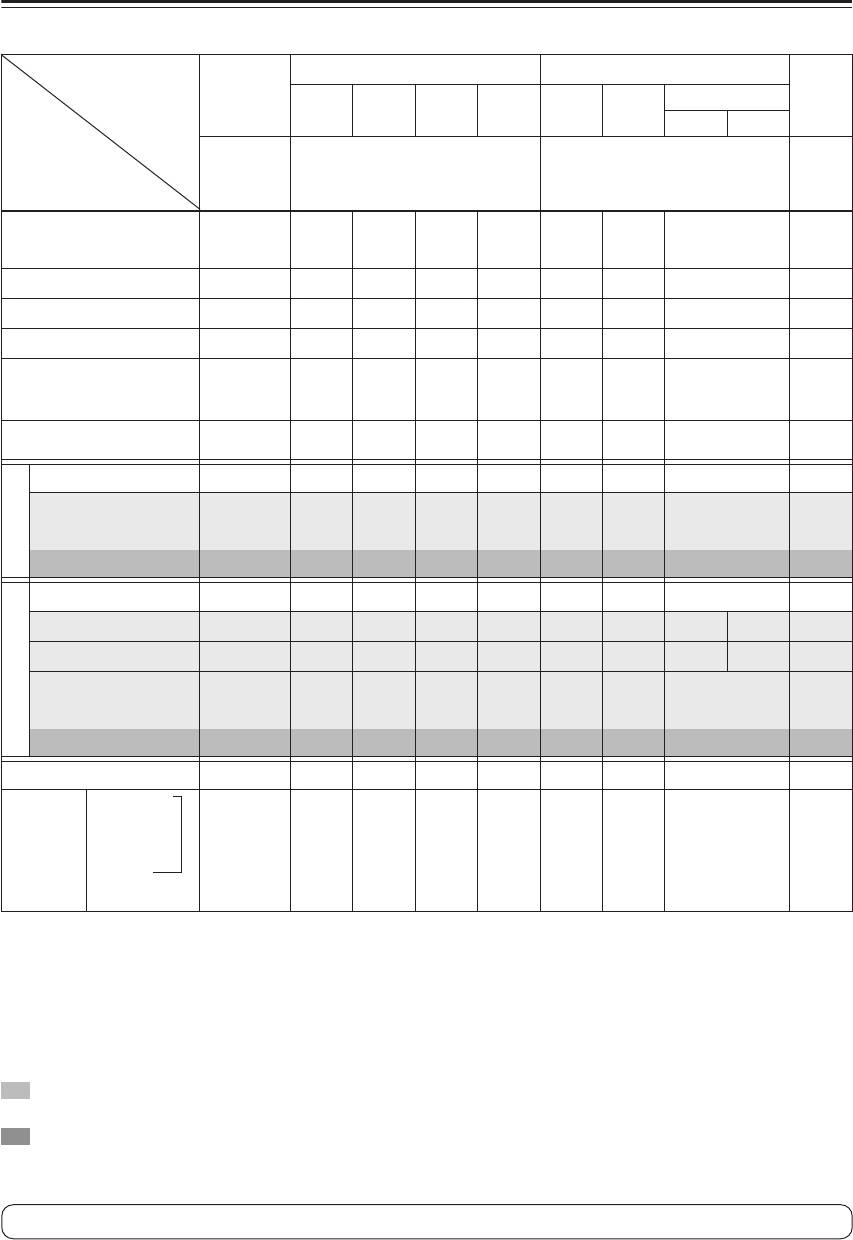
62
Using the Listening Modes—Continued
The following table shows which listening modes can be used with each input signal format.
: Only available on 6.1/7.1-channel playback systems. Not available while the ZONE 2 SPEAKERS terminals are
being used.
: Only available on 7.1-channel playback systems. Not available while the ZONE 2 SPEAKERS terminals are
being used.
Source format
Listening mode
Analog,
PCM
*1
1. In the Pure Audio and Direct listening modes, 32 kHz, 44.1 kHz, and 48 kHz PCM is processed at 64 kHz, 88.2 kHz, and 96 kHz respectively. In
listening modes other than Pure Audio, Direct, and Stereo, 64 kHz, 88.2 kHz, and 96 kHz PCM is processed at 32 kHz, 44.1 kHz, and 48 kHz
respectively. For PCM 176.4/192 kHz signals input through HDMI IN, only Pure Audio, Direct, and Stereo listening modes can be selected.
Dolby Digital
DTS/DTS 96/24
*2
2. In listening modes other than Pure Audio, Direct, Stereo, and DTS 96/24, DTS 96/24 sources are processed as normal DTS.
Multich
analog,
Multich
PCM
3/2.1
2/2.1
2/0 1/0, 1+1 Other
3/2.1
2/2.1
2/0
DTS-ES
Discrete Matrix
CD, TV,
radio,
cassette,
etc.
DVD, DTV, etc. DVD, CD, etc. DVD
Pure Audio (not North
American models)
Direct
✔ ✔✔✔✔✔✔ ✔ ✔
Stereo
✔ ✔✔✔✔✔✔ ✔
Mono
✔ ✔✔✔✔✔✔ ✔
Multich
✔
PLIIx Movie/Music/Game
*3
Neo:6 Cinema
Neo:6 Music
3. If the Surr Back parameter is set to None, or the ZONE 2 SPEAKERS terminals are being used, normal Pro Logic II is used.
✔✔ ✔
Neural Surround (North
American models only)
✔
*4
4. Not available for 88.2 kHz and 96 kHz PCM input signals.
Dolby
Dolby D
✔✔
Dolby+Neo:6
Dolby D EX
Dolby D+PLIIx Music
✔
Dolby D+PLIIx Movie
✔
DTS
DTS, DTS 96/24
✔
✔
*5
5. If the Surr Back setting is set to None, or the ZONE 2 SPEAKERS terminals are being used, normal DTS is used.
6. Available only when surround speakers are connected.
DTS-ES Discrete
✔
DTS-ES Matrix
✔
DTS+Neo:6
DTS+Dolby EX
DTS+PLIIx Music
✔
DTS+PLIIx Movie
✔
T-D
✔ ✔✔✔✔✔✔ ✔
Onkyo
Original
DSP
Mono Movie
Orchestra
Unplugged
Studio-Mix
TV Logic
All Ch Stereo
Full Mono
✔ ✔✔✔✔✔✔ ✔
*6
Tip: To check the format of the digital input signal, see “Displaying Source Information” on page 50.


















